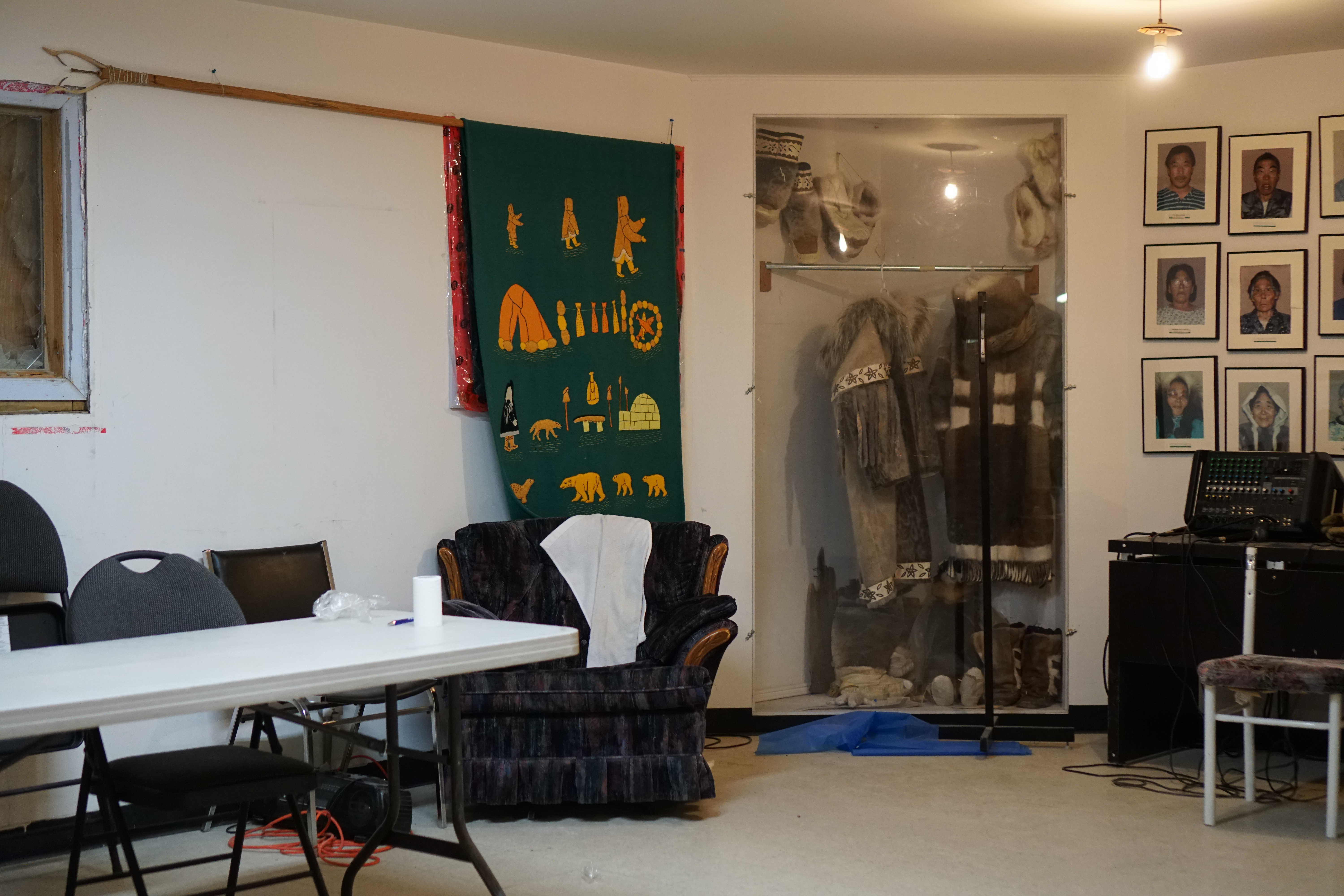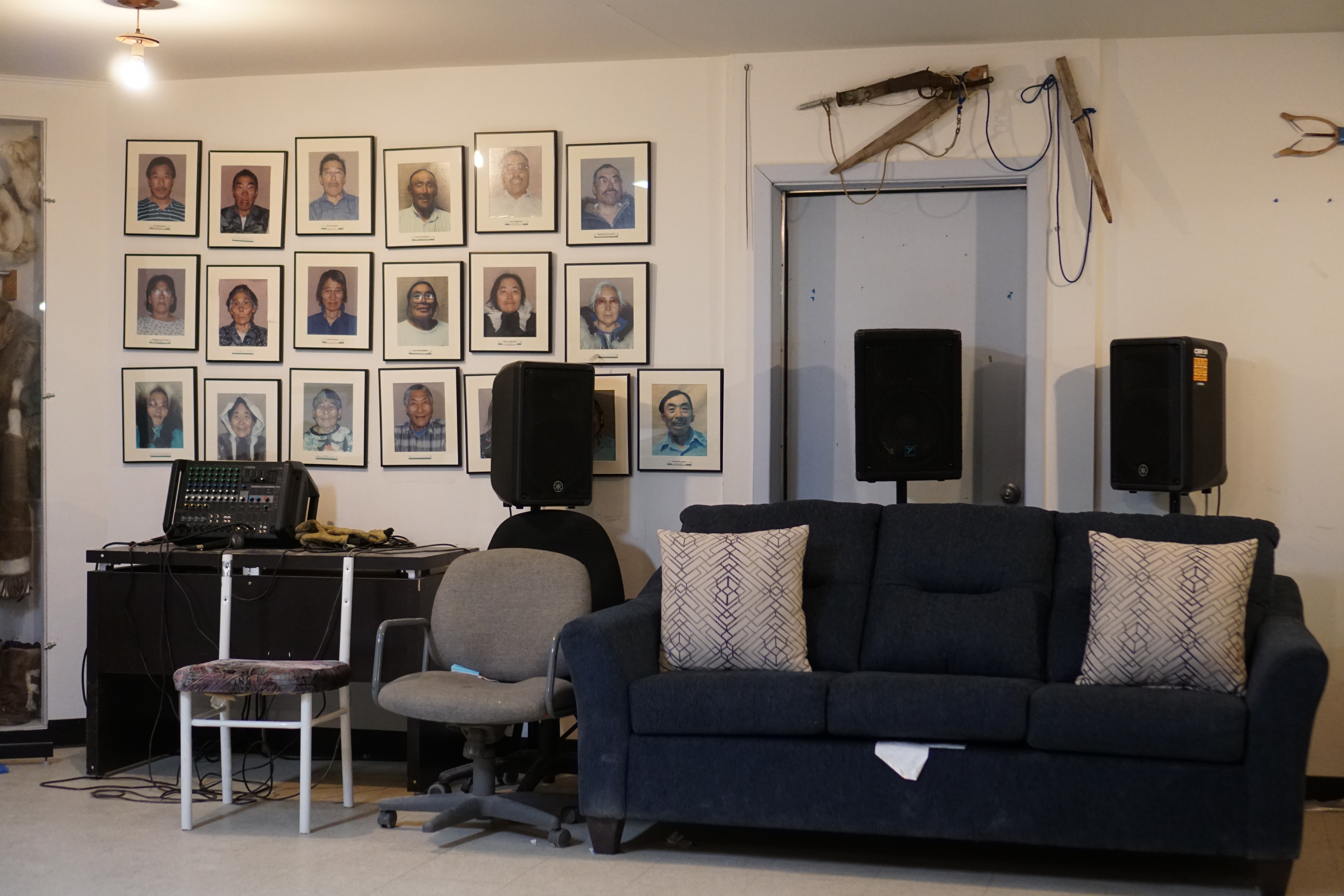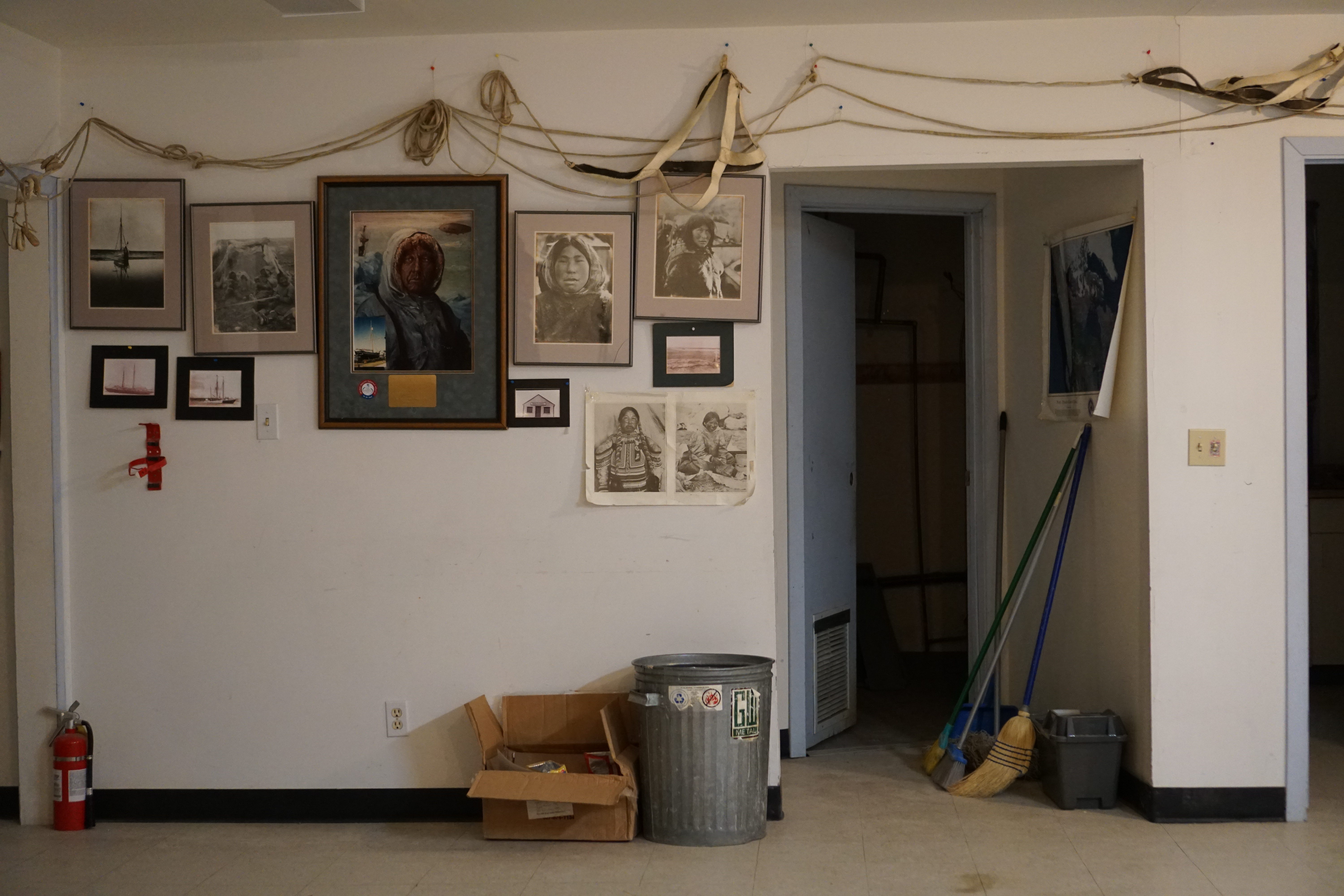Workshop Invitations
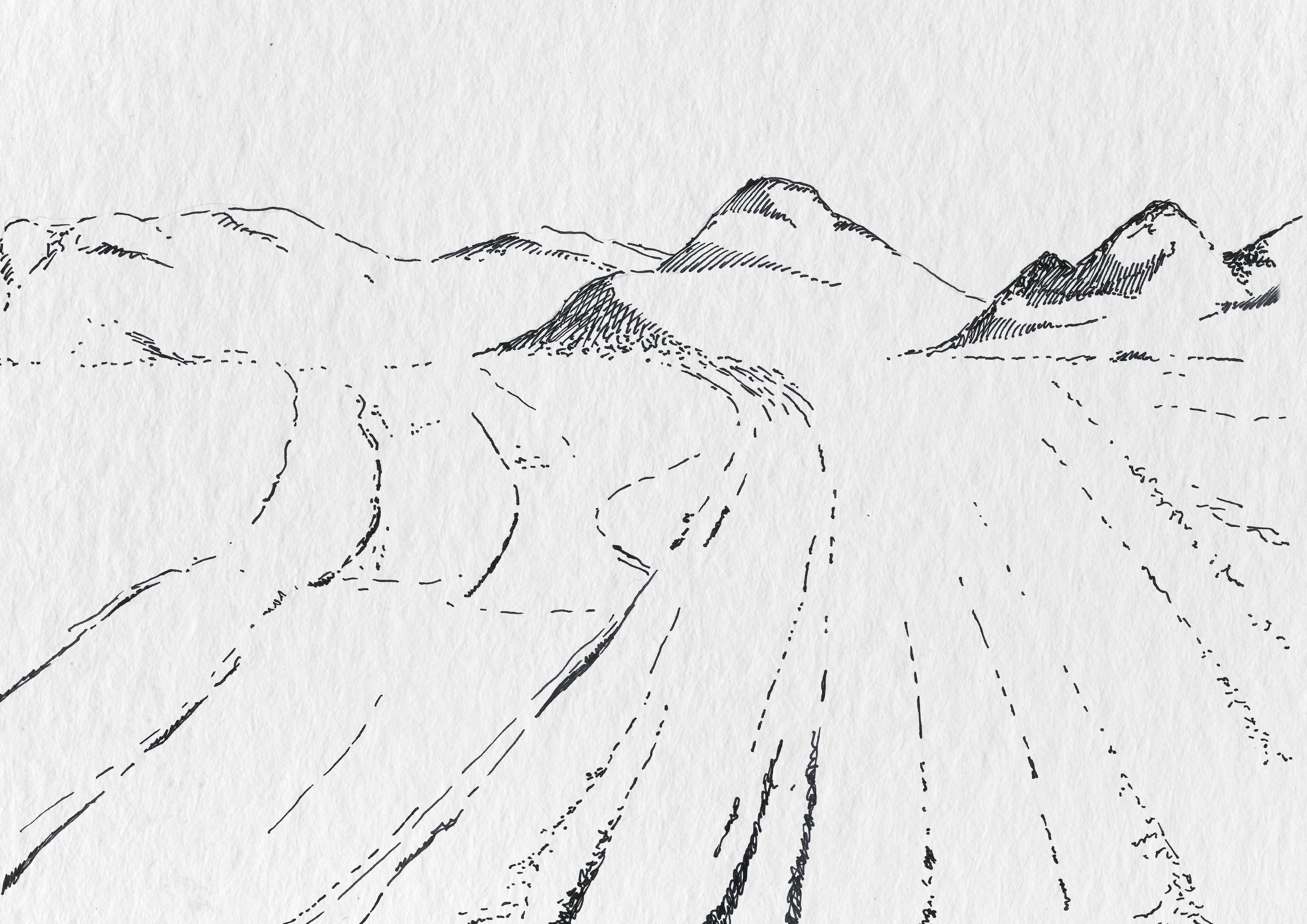
Dear …,
We would like to hereby cordially invite you to the final gathering of our Genome Canada project; "BearWatch, Monitoring Impacts of Arctic Climate Change using Polar Bears, Genomics and Traditional Ecological Knowledge:,
Why:
In a rapidly changing, and sometimes politically contentious environment, we believe that meaningful engagement with Inuit communities in polar bear research is crucial to a sustainable future for both bears and humans. We take great pride in our collaboration with local communities with whom over the past years we have developed and implemented a new non-invasive genomic toolkit. This gathering will center around the introduction of this toolkit and its potential to policymakers, research advisors, governance representatives and Nunavummiut communities. The gathering also aims to provide a space for collective exploration. How to implement this tool? How to ethically conciliate Inuit knowledge and values with genomic science when implementing this tool? How to mutually agree upon ‘management’ decisions when coming together in difference?
How:
We believe that the best way of coming together to explore creatively and with less restrictions, is to meet in spaces outside of the ones where day-to-day business-as-usual decisions are made. We invite you to gather with us in person, in the communities where much of the work has been developed and executed. We invite you to come as you are, both as an ‘expert’, ‘policymakers’ or ‘researcher’, but most of all as a human that deeply cares for polar bears and our ongoing relationship with them.
What:
Do not expect a purely conventional presenter/listener format. This gathering will introduce the Genomic toolkit, present scientific findings and its community inclusive approach, however we seek to do so by generating creative engagement. Expect a hands-on, partially on-the-land experience where multiple senses are engaged and challenging topics are approached through interdisciplinary lenses and reflections.



Kumospace
Apart form the community of Gjoa Haven, 28 people from the south joined the final workshop. Those that could not join, could participate remotely through a zoom-connection though a starlink satalite connection.
To provide a welcoming environment online, I had created a "kumospace" through which remote participant could find some research context and connect with each other outside of the plenary meetingspace in zoom.
Bingo
Have break from all that organizing.
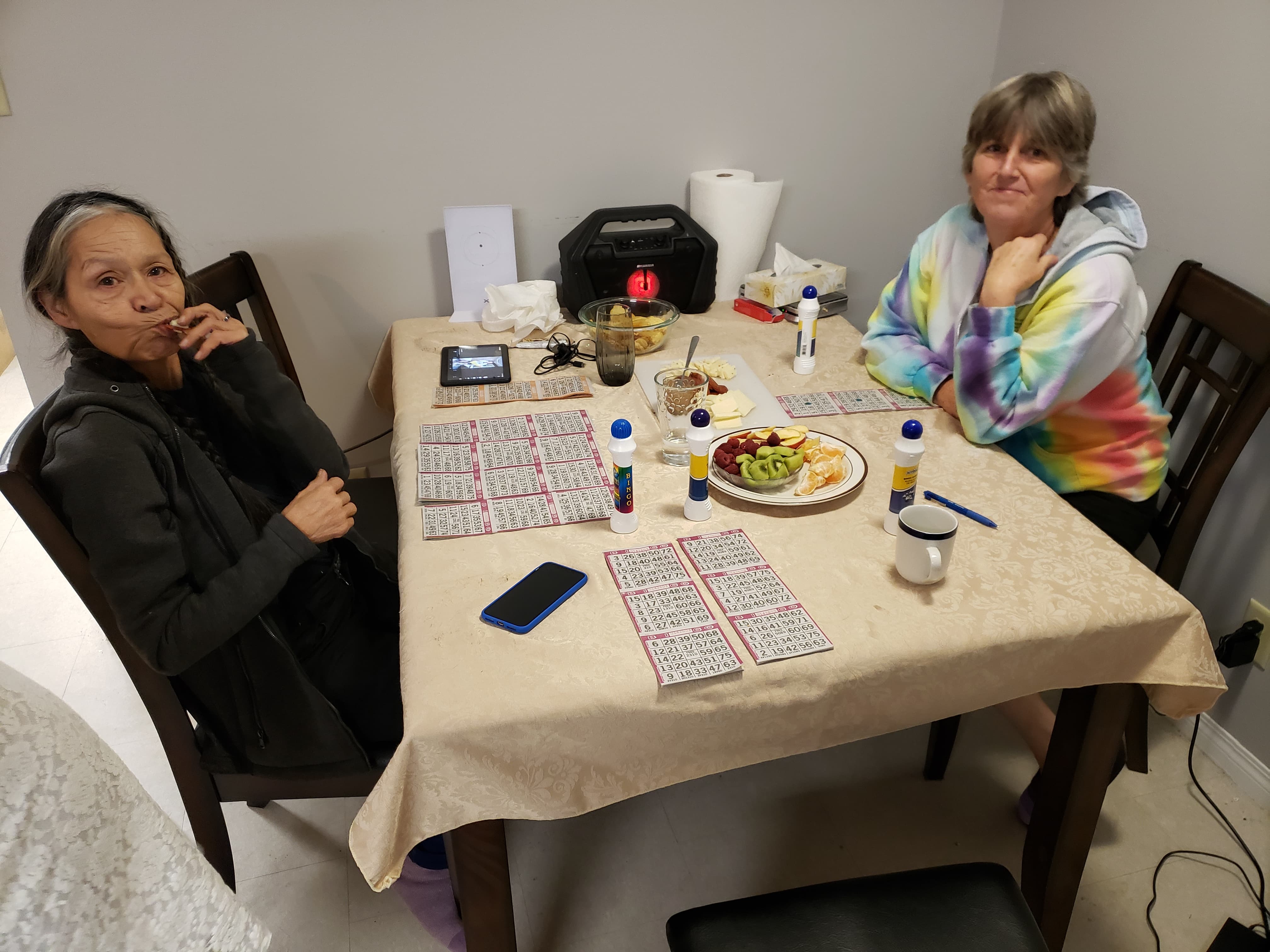
Making posters
At one point during the pre-workshop, I had addressed the issue of science communication. I wanted to know through what form of presenting the science would be most accessible to the community.
The responses varied from 'brief', and 'just the main points', to the suggestion of not using jargon. In response to the last point, I had asked about visuals: whether it would be helpful to have some main scientific concepts like "DNA", which do not have an precise Inuktitut translation, visualized in a way that would be visible throughout the gathering.
The participants of the pre-workshop agreed that this would be helpful, "To get people up to speed, so they can jump right into the work".
Before the workshop we sat down with artist Danny Aaluk, interpretor Tuppittia Qitsualik, and biologists Marsha Branigan and Kimberley McCLintock to create drafts for the following posters.
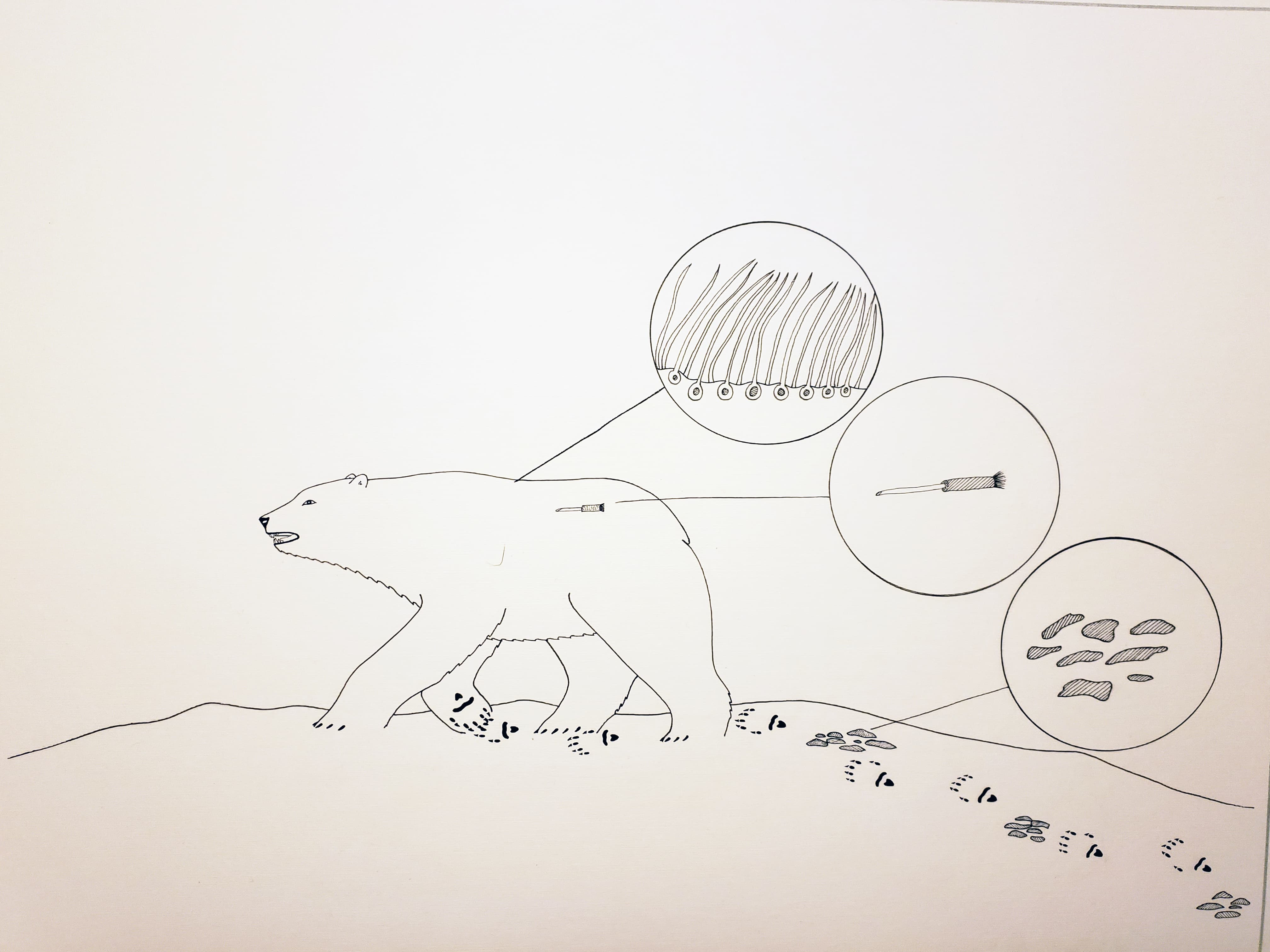
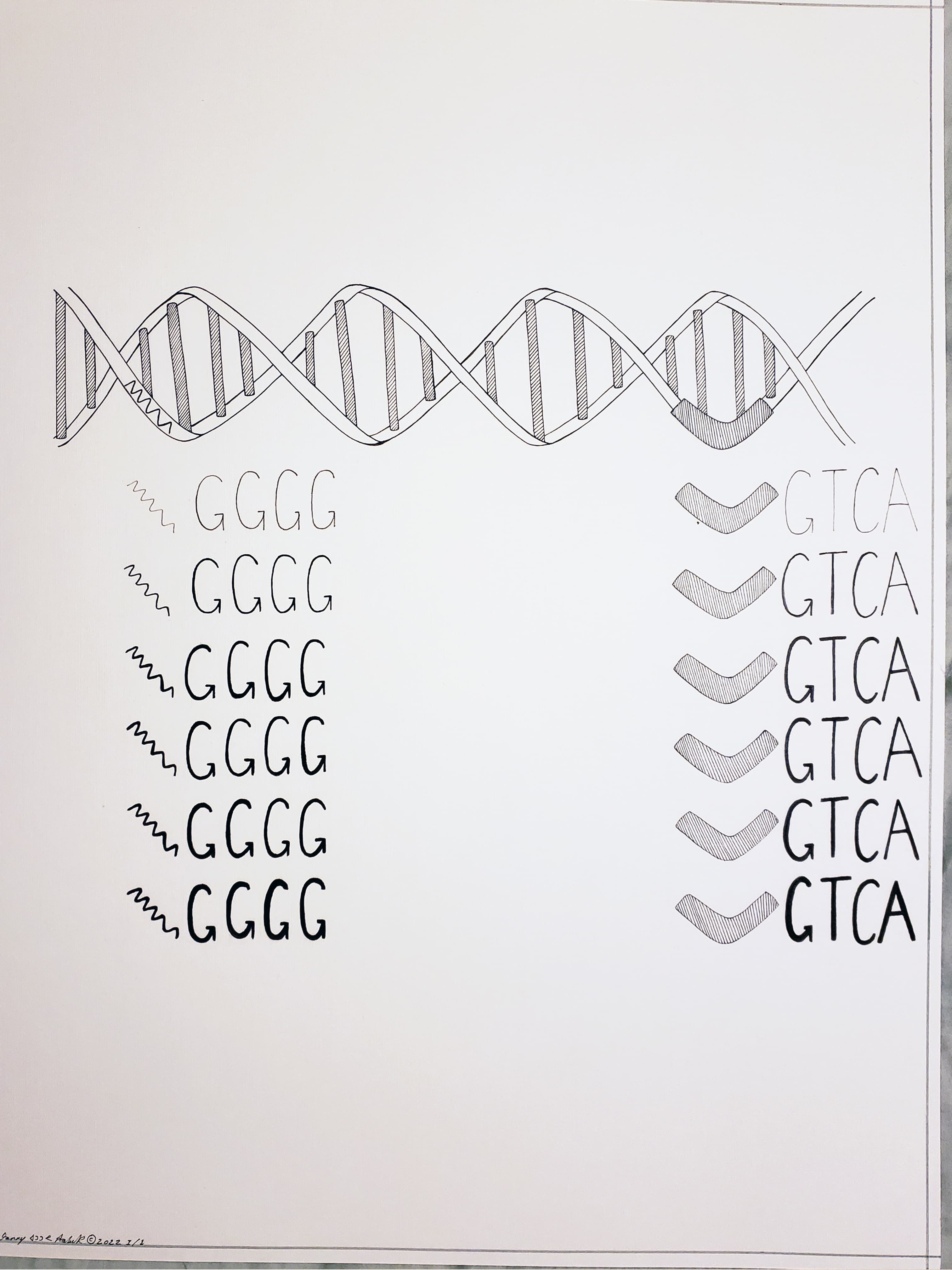
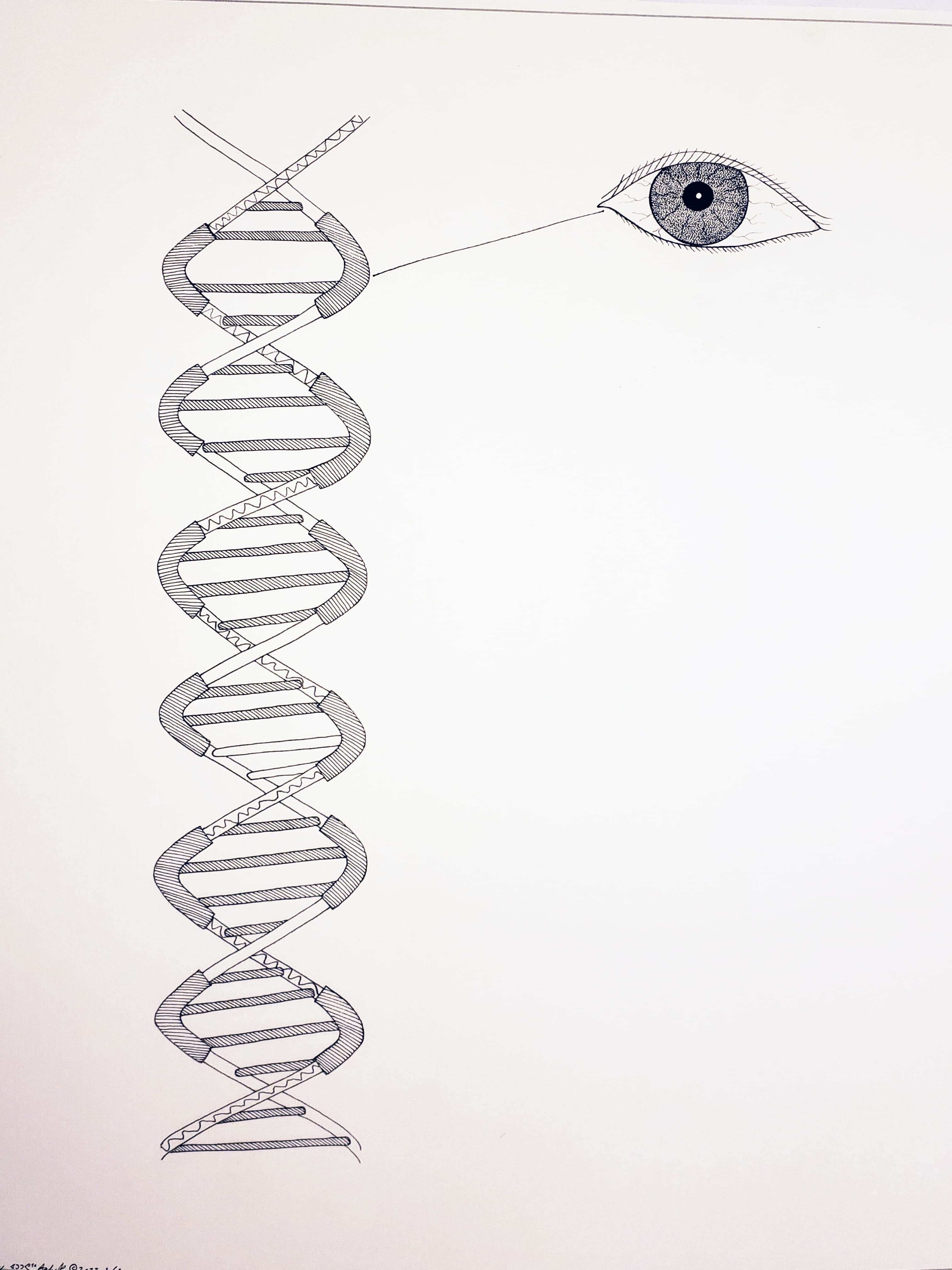
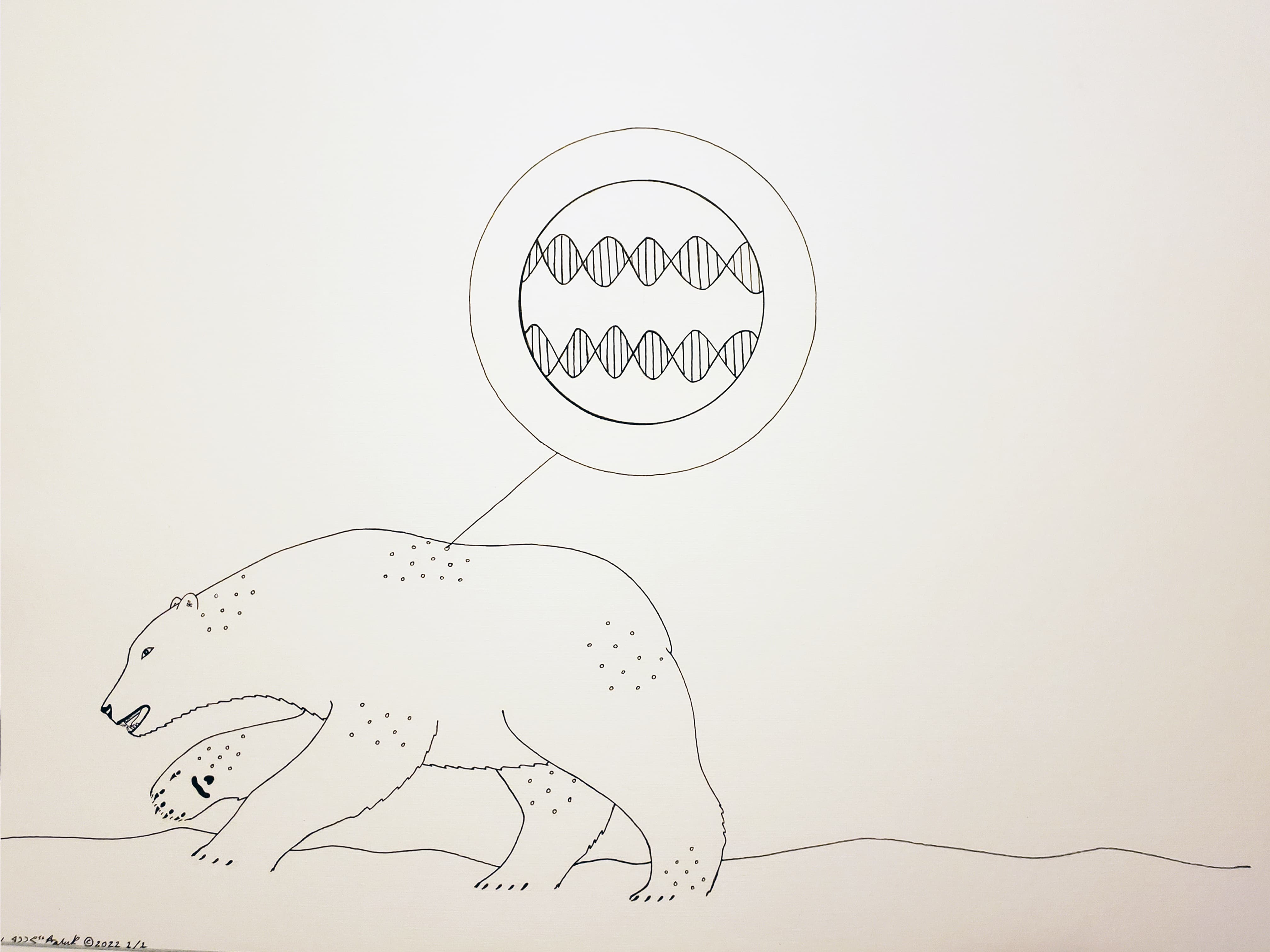
Scouting Igloo Site
To build a Qaggiq, we needed to find a suitable spot, with the right kind of snow - close enough to the community so that people could join, and big enough so that we could have space to practice cutting blocks for the igloo as well.
As Jimmy and David would take the lead on building the Qaggiq, we went out to scout an appropriate site with them, Tuppittia and Percy, who had not been able to join the pre-workshop, but would be building the Qaggiq with us during the workshop.

The snow was not good at most of the sites we checked. Eventually however, we did find a spot close to town ,and David decided we could build an igloo instead of a qaggiq - which probably also was a better fit for the time we had available, and the hours of sunlight at that time of the season.
Country Food
With the gathering coming up, one of the most crucial things still had to be organized: the food. Everyone asks who will be cooking the food. So it's important to ask the right person.
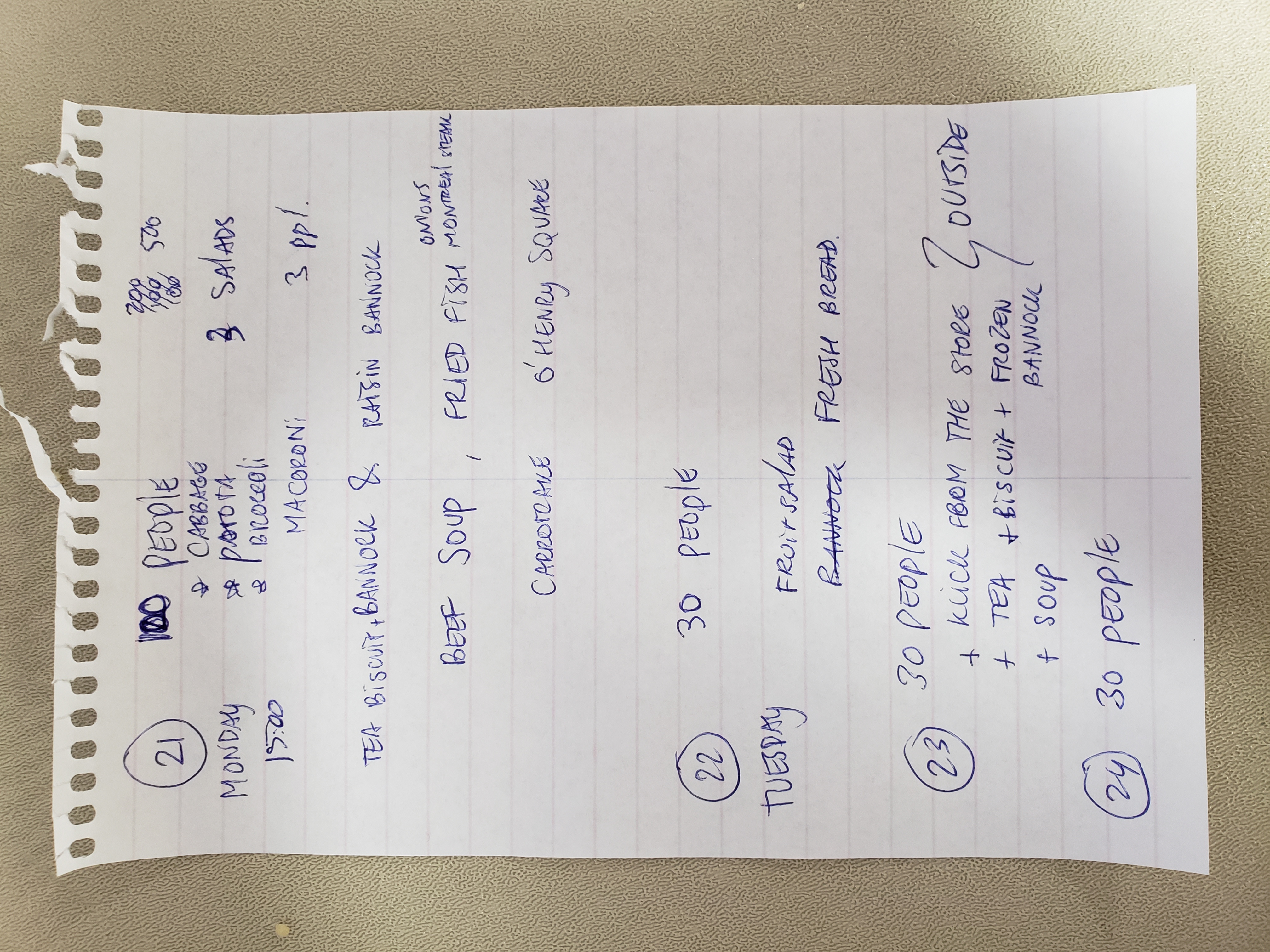
Space for Gathering
Finally, you need a space for the gathering.
In your search you end up discovering the perfect spot. The Tuttakvik center. The size is perfect for smaller groups, while still being able to hold 60 people, if they would show up in such numbers. There are comfortable couches and a small kitchen, as well as facilities to brew pots of coffee and tea. We would have to fill up the oil for the heaters ourselves though, and there is no running water. We would also have to bring in a lot of chairs. But what it lacks in amenities, it facilitates in spirit. The center is filled with pictures, object and artefacts of community elders, and people assed a long time ago.
